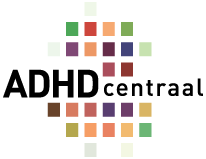eHealth
eHealth Impulsivity
Tips for Better Impulsivity
You are on the waiting list for diagnostics for and possibly treatment for ADHD. Leading up to your research, we would like to give you some tips for dealing with impulsivity. By this is meant: sudden, thoughtless, under/uninhibited behavior.
Find out if you recognize impulsivity and whether it has adverse effects on you and others and, if so, which ones. Discuss this on diagnosis day.
When you come to us for treatment, a psychologist can help you put the tips below and others into practice and stick with them.
Tip 1: Act in a planned way
Every task, assignment, obligation has its own objective. A common pitfall is just starting somewhere and seeing where you end up. With the step-by-step plan below, you can learn to take more planned, deliberate action.
1. Purpose
- Formulate your (end) goal in concrete terms.
- Divide into achievable steps.
- Write on your to-do list or in your calendar When you will work on what.
2. Preparation
- Think about what you need to achieve your goal
- How much time will it cost (approximately)? What is the deadline?
- Who and what do you need to implement your plan?
- When are you going to do this?
- ZAre there certain distractors to counteract, how will you do this?
3. Output
- Implement your plan, step by step.
- Take regular break.
- Try distractors “park” them until breaks/later.
4. Evaluation
- Evaluate how it went.
- Have you done what you intend plan was?
- What went well and how did this come about?
- What would you dodifferently next time and how?
Tip 2: Stop-thinking-doing
Impulsivity can manifest itself in various ways, for example, saying “yes” to everything or thoughtless things, impulse buying, binge eating, etc. This can have unpleasant consequences, for example, in contact with others or financially. How does it express itself to you?
Using the fill-in-the-blank diagram below, you can learn to stop, think and then do more.
